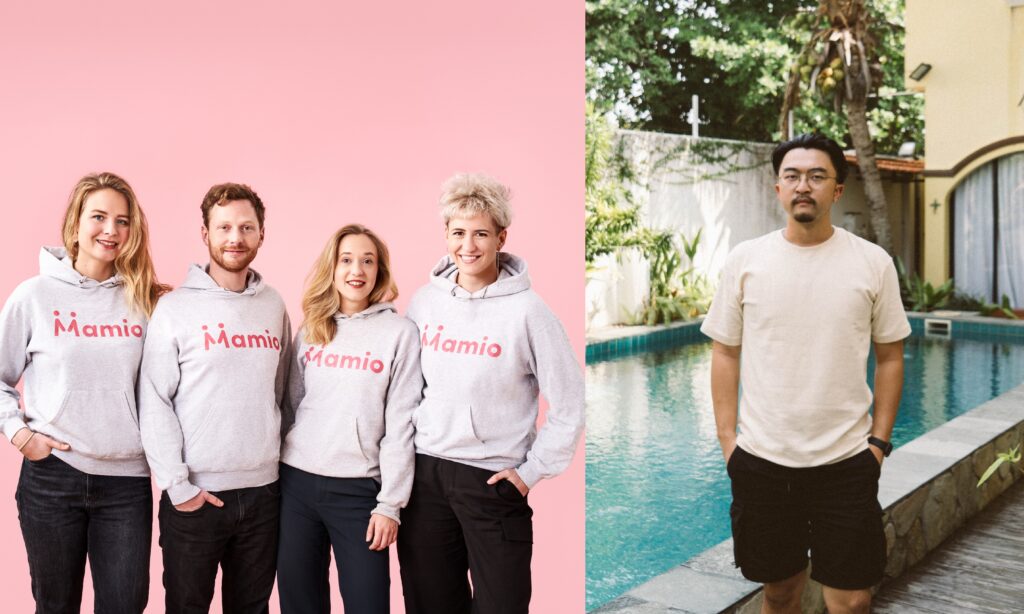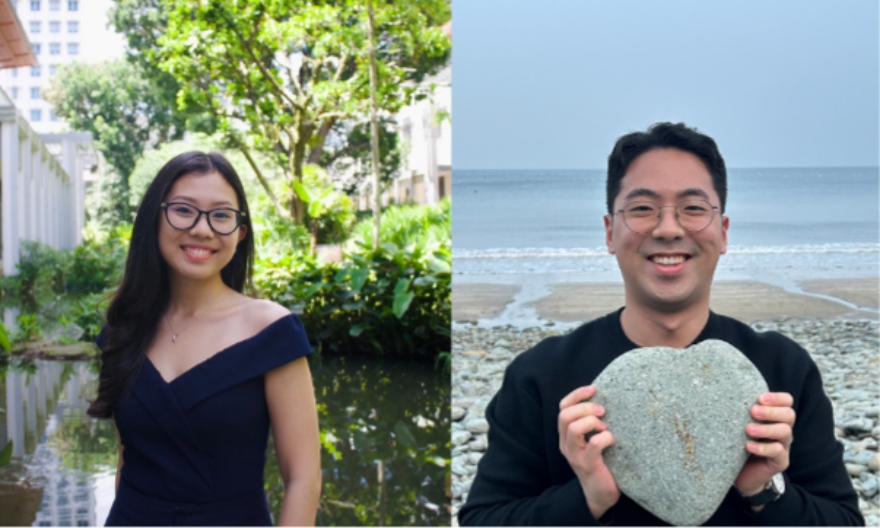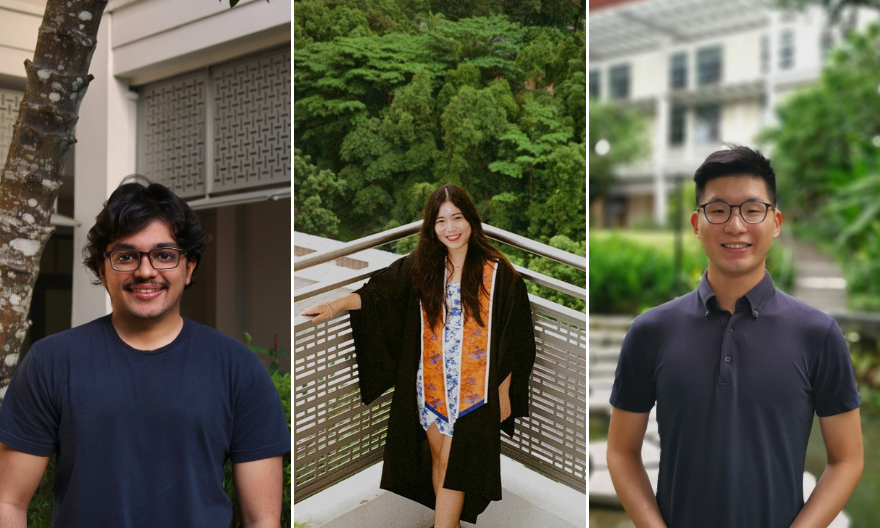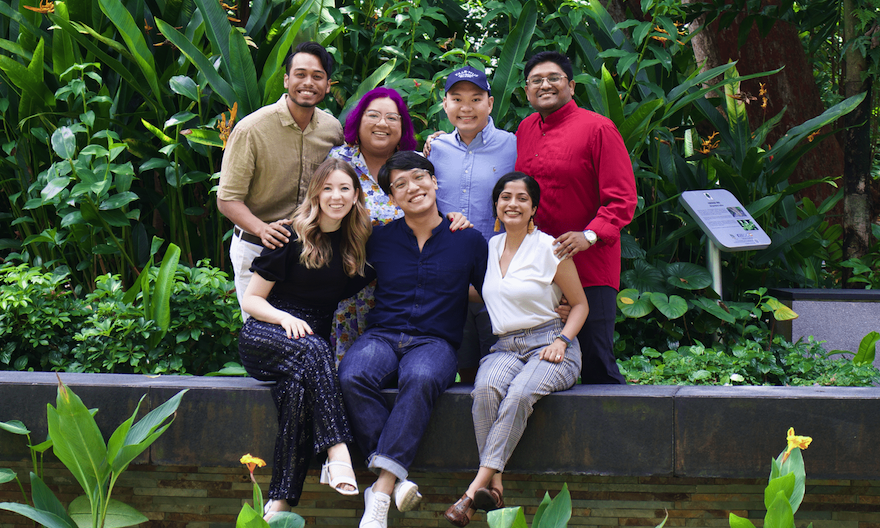Yale-NUS Alumni Technopreneurs
Two Yale-NUS alumni share their experiences establishing technology start-ups for social and corporate impact

Yale-NUS alumni have become trailblazers in their own right, pushing boundaries and bringing unique and innovative perspectives to their respective fields. Laureen Höllge (Class of 2018) and David Zhang (Class of 2019) have continued this legacy through technopreneurship: creating start-ups which utilise innovative technological solutions to create social impact.
Laureen is the co-founder of Mamio, an application where mothers can connect with each other based on location and the age of their children, creating a supportive community which supports them through their motherhood journeys. “We co-founded Mamio because we saw so many women become mothers and suddenly face loneliness and isolation. Four out of five moms feel this way in Czech Republic,” Laureen explained. “We saw the opportunity in innovating how parenting forums look like in Central and Eastern European regions and decided to go after it.”
Mamio has been hugely successful, rapidly developing a large user base and even receiving the Social Impact Award which recognises innovative start-ups across 19 countries which create lasting social impact. This impact on communities and mothers’ lives is what Laureen treasures the most from her start-up journey. “[My favourite memory is] seeing the first moms sign up and use Mamio to create friendships and share their journey. Doing that work with my team is just a joyous rollercoaster ride.”
David founded INTERLUNAR in 2021, a digital transformation and innovation consultancy which provides consulting and tech solutions to students, working professionals, start-up founders, and multi-national corporations. Its design wing also produces a wide breadth of creative assets and digital products for its clients. In the past two years, INTERLUNAR has completed projects with agile start-ups like Upconverge and organisations such as the National Library Board and the Singapore Kindness Movement.
David’s inspiration for INTERLUNAR also stemmed from a vision of social impact: “I had this idea of democratising consulting services by creating an initiative that gave everyone access to consulting services, not just larger entities or those that receive funding. I have a mission of helping students, fresh graduates, and bootstrapped start-ups to achieve their highest potential in the digital and productivity spaces. That’s where INTERLUNAR started, and we’ve kept this mission going since day one.”
Reflecting on their Yale-NUS experiences, Laureen and David both shared how their time at the College prepared them well for their start-up ventures. In particular, they emphasised how the College’s liberal arts curriculum inculcated a strong sense of flexibility and adaptability key to founding a start-up.
“Yale-NUS prepared me well for the role of a start-up founder. Especially in the early stages, one has to be a generalist. Within one day, you have to juggle decisions about the product, user research, business model, etc.,” Laureen explained. “Jumping across different domains in a start-up feels really similar to the Liberal Arts concept where you have to learn about the different subjects’ way of thinking quickly in order to connect it with other subjects. As for social impact, thanks to my education at Yale-NUS, doing something that would not have a positive impact would not be an option.”
“My Yale-NUS experience enabled me to embrace and carry my quirks, idiosyncrasies, and out-of-the-box thinking to INTERLUNAR,” David reflected. “INTERLUNAR is a brainchild of both disciplines of Global Affairs and Arts & Humanities. Finding opportunities and experimenting in college has allowed me to be comfortable with disruption and uncertainty, to continually test the waters.”
“From a more technical point of view, Yale-NUS encouraged me to approach challenges with an open mind, to dive into problem statements with a structurally-nuanced methodology and ensure solutions that I help generate are beneficial to all parties, enhancing productivity and growth.”
Finally, Laureen and David provided valuable pieces of advice for budding technopreneurs. “If you are still studying, use that time and space to try to start your own company or idea,” Laureen suggested. “Gaining the skill and confidence to create something later on will have much higher barriers to entry.”
As someone deeply interested in the start-up space since high school, David shared: “I would say just do it. There’s less to lose early in your career. Learn as much as you can about the space, meet with people, gain industry know-how, and do your best to test the market and your service or product to ensure there’s a good fit and demand.”





